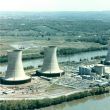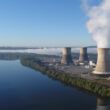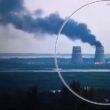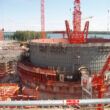Make GNEP a forum for discussion, not negotiation
By Jill Marie Parillo, August 26, 2008
Leonor Tomero provides a comprehensive look at the current state of the Global Nuclear Energy Partnership (GNEP) in her Bulletin Web-Edition series, “The Future of GNEP.” She lays out the inherent proliferation risks of such initiatives, which aim to expand nuclear energy in a safe and secure manner worldwide, but end up legitimizing the commercial use of sensitive fuel-cycle technology.
Ending GNEP or continuing it in its current form won’t help address waste storage and proliferation concerns arising from the use and projected expansion of nuclear energy. The United States should instead transform GNEP into a truly global partnership that brings together experts from member states to discuss these issues, but not negotiate their resolution.
In order to broaden GNEP, countries need to be assured that the partnership won’t be a forum for negotiating a change to Article IV of the Nuclear Non-Proliferation Treaty (NPT), the inalienable right of signatories to nuclear energy technology. Instead, countries could use GNEP meetings as workshops for discussing waste storage and proliferation issues that arise from their NPT-provided right to nuclear energy technology, without the risks inherent in full negotiations.
GNEP meetings would become akin to Biological Weapon Convention (BWC) annual meetings of experts and states parties, which are held in yearly intervals between treaty review conferences. These BWC meetings bring together experts from member states to discuss, but not negotiate, topics related to the BWC. Since GNEP isn’t restricted to NPT states, it could be transformed into a forum for addressing nuclear energy issues, while also bringing NPT outsiders into a nonproliferation-regime dialogue.
A 2009 House Committee report instructed the Energy Department to continue to foster relations with countries with advanced fuel-cycle capabilities (i.e., Britain, France, and Japan), but not with those that don’t yet have them. This isn’t the right approach, since it continues to support a system of global haves and have-nots. If such a divide continues to grow, NPT and GNEP outsiders will continue to make their own rules for wheeling and dealing in sensitive fuel-cycle technologies. GNEP should instead decrease the prestige associated with being a nuclear insider by becoming an all-inclusive nuclear club.
But building trust and broadening the partnership won’t be easy. GNEP must provide further proof that it doesn’t plan to infringe on states’ rights to nuclear energy. For example, although a real need for nuclear energy in oil-rich states is questionable, it must be accepted to entice all of the Gulf Cooperation Council states (Bahrain, Kuwait, Oman, Qatar, Saudi Arabia, and the United Arab Emirates) to join GNEP. Nuclear-interested countries such as the United Arab Emirates, which will see its electricity demand double by 2020, must be included in a system that allows the safest, most proliferation-resistant expansion to take place.
To convince countries to join and broaden the partnership’s appeal, GNEP must also promise not to infringe on the right of sovereign nations to possess nuclear enrichment or reprocessing technology. “South Africa, as an export country cannot contribute and participate in a scheme that violates a fundamental provision of the NPT,” said South African Ambassador Abdul Samad Minty during a June 2007 interview at the Carnegie Nonproliferation Conference in Washington. Such concerns must be alleviated.
Changes in GNEP have happened in the past. In order to gain broader support, Energy changed GNEP’s principles and objectives at the 2007 May and September ministerials, as Leonor reported. The United States could change GNEP again. A new administration could offer incentives, in the form of further U.S. nuclear disarmament, to build international trust.
It’s premature to start negotiating ways and means to curb the global spread of sensitive nuclear technology. By becoming a forum for discussion, rather than negotiation, GNEP could be a step toward creating multilateral polices to better manage the emerging global nuclear fuel cycle.
Topics: Nuclear Energy
Share: [addthis tool="addthis_inline_share_toolbox"]














